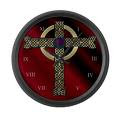I recently read a horrible book about team work that, although it was written in the late 90's, had the look and feel of a much older--read outdated--text. I did manage to find a few useful things in the short 110 page read about the process that teams go through as they develop into successful organisms that work toward a larger goal than any one of the individuals in the team could ever accomplish alone.
The process has four steps:
1. On Guard
2. Duel
3. Healing
4. Victory
The terms are probably pretty self explanatory, but "on guard" basically means that each team member is less likely to put him or herself out there or take risks because the boundaries are not so clear. In general, everyone treats everone else nicely but on a superficial level. The second, is simple the time when everyone lets their guard down and begins working against others on the team with the full belief that in doing so each has the ability to make the team better on his/her own without regards for any other. I was once told by a supervisor that, "sometimes being on a team is all about one person, and only one person matters." This is a great example of dueling. Healing is the mystical place where healthy teams move to once they finally learn that each person has something valuable to add to the overall goals or agenda. It is the point when people begin to listen and stop trying to win. Victory is when trust and respect is built amongst the team members and each is able to open up more freely and take more risks for the advantage of the team. Vulnerability, depending on the type of team comes online in the victory stage.
This book I read was all about business and how college graduates can make it in the "real world" of corporate teams. The irony I found in the four stages of team development is that they are, in definition at least, exactly what I learned ten years ago about forming a team with a complete group of strangers bound by a common cause and mission. The language was a little more colorful but clearly holds the same meanings. It was stated that all teams go through this four-fold process:
1. Fake
2. Fight
3. Fart
4. Family
Now this was a more casual environment and involved individuals actually living together to accomplish the common goals and the effective team. However, these four colorful "F" words seem to ring true in both the more simplistic team building approach of 20-somethings living together in the inner-city as they do for corporate America attempting to push toward new economic heights, or as of lately, avoid slipping any lower into the pits of despair. It seems that in whatever situation one finds him/herself in, team building is essential to success and it will likely require the same steps in all manner of venues.
Tuesday, March 17, 2009
Subscribe to:
Post Comments (Atom)










No comments:
Post a Comment